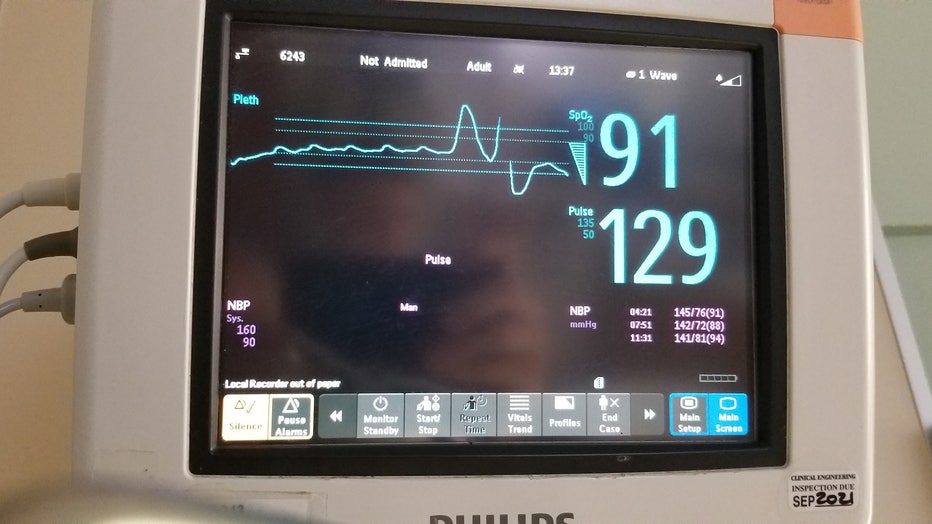Metabolic syndrome: How a cluster of common conditions can raise your risk of heart attack, stroke
ATLANTA - It's the plight of middle age: our pants get tighter, our blood pressure goes up, and suddenly our doctor wants to keep tabs on our blood sugar.

Metabolic syndrome is a cluster of risk factors that can raise your risk of heart attack, stroke and type 2 diabetes. (FOX 5 Atlanta)
On their own, Emory internist Dr. Sharon Bergquist says, these conditions are common, and may not be especially worrisome.
"But when you have all of these different risks, and you put them together in this cluster we call metabolic syndrome, your risk of complications from heart disease and diabetes are so much greater," Dr. Bergquist says.
The American Heart Association estimates about one in four adults in this country has metabolic syndrome, which is closely tied to insulin resistance, or an inability of the body to properly use insulin.

What is metabolic syndrome
Up to 30 percent of American adults have metabolic syndrome, a condition that raises risk of heart attack and stroke
Bergquist says many people with metabolic syndrome may not connect the dots, realizing that their risk factors are connected.
So how do you know?
Dr. Bergquist says there are five risk factors for metabolic syndrome:
- excess belly fat, or waist circumference of 35 inches or higher in women and 40 or higher in men
- high blood pressure, which is classified as blood pressure of 130/85 or higher
- high LDL cholesterol, or triglyceride level greater than 150
- low HDL, or "good," cholesterol, which is less than 40 in women, or 50 in men
- and high blood sugar, classified as a fasting blood sugar over 100
"If you have 3 of those 5 conditions, you have metabolic syndrome," Dr. Bergquist says. "It's incredibly common, and the important thing is, this is reversible."
Focus, Dr. Bergquist says, on making lifestyle changes.
- Transition to a heart-healthy diet, eating more vegetables, fruit, whole grains, lean meats, healthy fats, and fewer saturated fats.
- Work on getting to a healthier weight.
- Try to get at least 30 minutes of exercise on most days of the week.
- Find ways to better manage stress.
- If you smoke, quit.
Your doctor may also recommend medication to manage your risk factors.
"But the only way to actually reverse metabolic syndrome, and the only way to reverse the pathways that are leading to metabolic syndrome, is through the lifestyle changes," Dr. Bergquist says.
If you're overweight, and you've ever been flagged for other risk factors like hypertension, or elevated blood sugar, talk to your doctor about getting screened for metabolic syndrome.
If you have it, Dr. Bergquist says, ask your physician what you can to lower your risk of developing cardiovascular disease.

